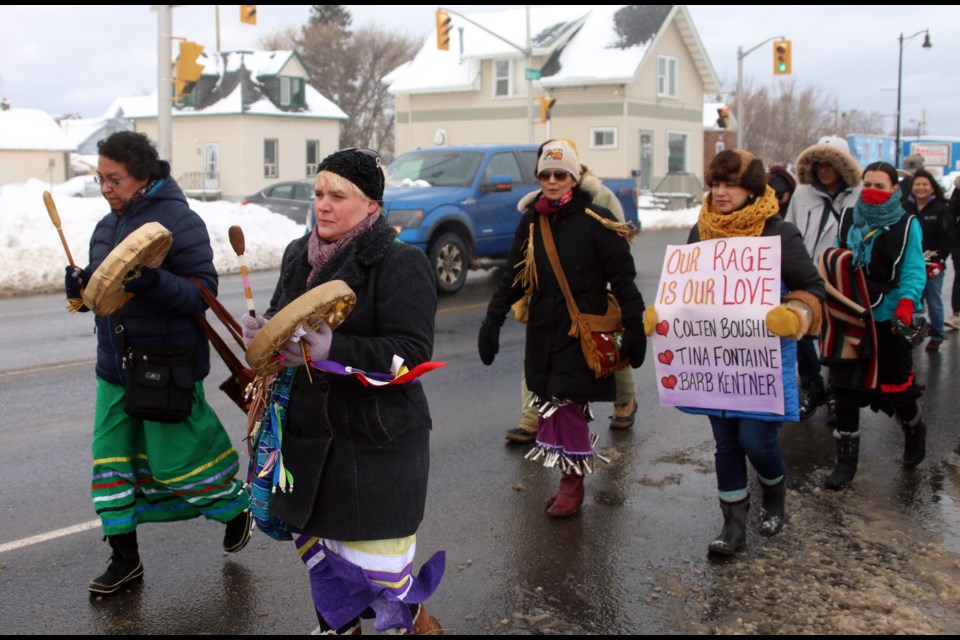THUNDER BAY – Michelle Derosier is tired of attending marches calling for justice for Indigenous people, or standing at vigils for lost youth and murdered Indigenous men and women. But she continues to march, she continues to speak out, and she wants to see all Canadians take action that goes beyond standing together.
“It is your silence that continues to kill us,” Derosier said outside of the Thunder Bay Courthouse following a march to honour Tina Fontaine on Sunday. “You have to do more than just show up.”
More than 100 people marched down May Street to the Thunder Bay Courthouse calling for justice for Fontaine following last week’s verdict that found Raymond Cormier not guilty of second-degree murder in connection to Fontaine’s death. The 15-year-old girl from Winnipeg, Man. was found in the Red River in August 2014, her body wrapped in a sheet and weighed down with rocks.
Shai Loyie, who organized the march, said as an Indigenous woman, she felt it was important to honour Fontaine and come together as a community to support one another.
“It has been very challenging with everything going on across the country within the justice system,” she said.
After hearing the verdict in the Fontaine case, Loyie said she felt completely disengaged and was still trying to cope with the verdict in the Colton Boushie case earlier this month.
“It’s really sad that as an Indigenous person, in order to survive, I have to completely turn off my emotions,” she said. “I didn’t react. I couldn’t. I didn’t have any real reaction and I’m still trying to come to terms with exactly what had happened.”
For Loyie and Derosier, marches for Fontaine and Boushie that have been held across the country in recent weeks, demonstrate there is a growing call for change and Indigenous voices will not be silenced.
“I want the rest of Canada and settlers to understand that we are still here and we will continue to fight forever,” Loyie said. “No matter what happens, we will respond in peace and we will come together in prayer. Our resilience is shining through and we will continue to rise up.”
But is also rests with non-Indigenous Canadians to speak up, Derosier added. She said it is one thing to join in the marches and stand at vigils, but the silence remains, and it’s time to speak up and turn words into actions.
“It’s about ending that silence and having people who are non-Indigenous, that will, I’m hoping they are willing, to speak up and take action within their own governments and not just have soft conversations, but start to demand action, demand action from municipal, provincial, and federal governments and people that actually have power to start making changes so we can stop having gatherings like this,” she said.
Derosier said the struggles and challenges that persist today are nothing new and the justice system and the nation’s colonial past was designed to destroy Indigenous people.
And even though she is tired of marching down city streets and standing at vigils, she will not stop calling for action, to ask everyone to speak a little louder, stand a little longer, and do a little more.
“We still show up,” she said. “I show up to support my community and Tina’s family and Colton Boushie’s family and Barb Kentner’s family. That is why I keep showing up.”
